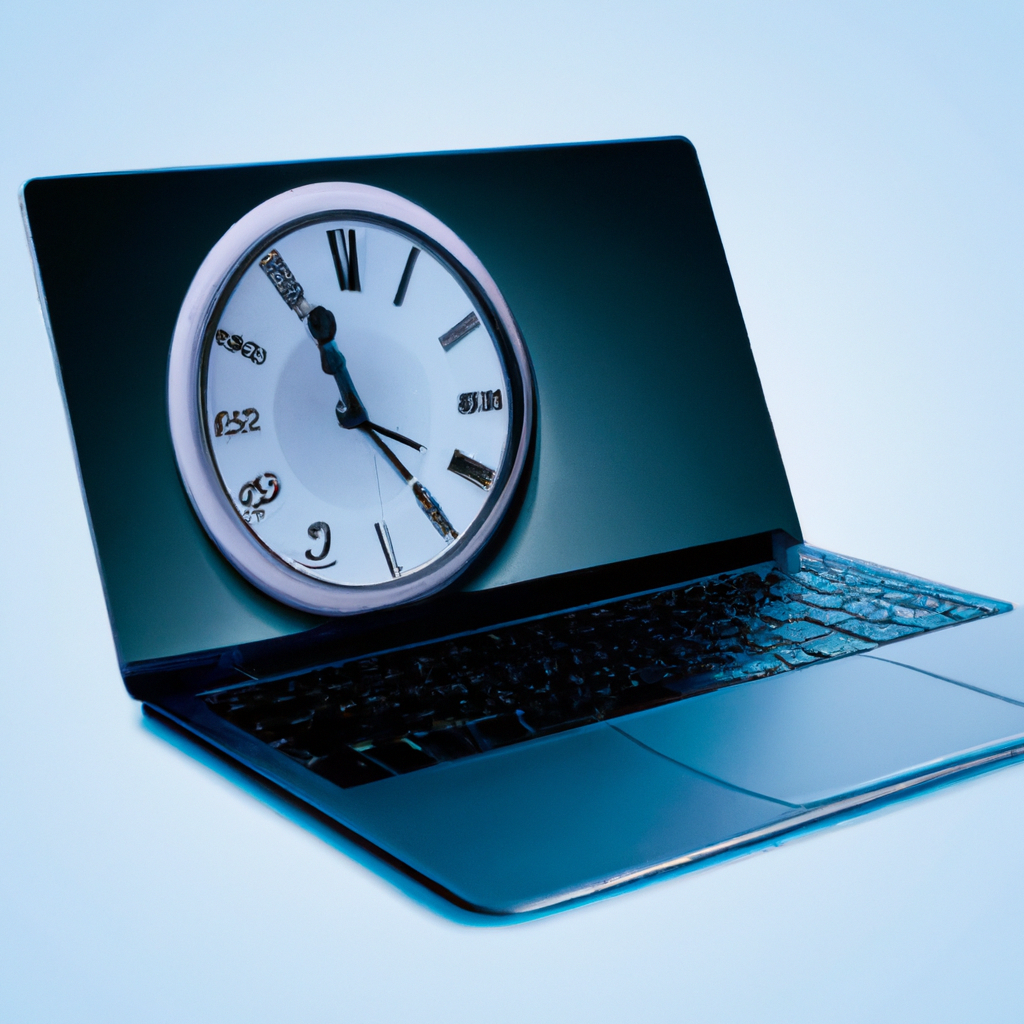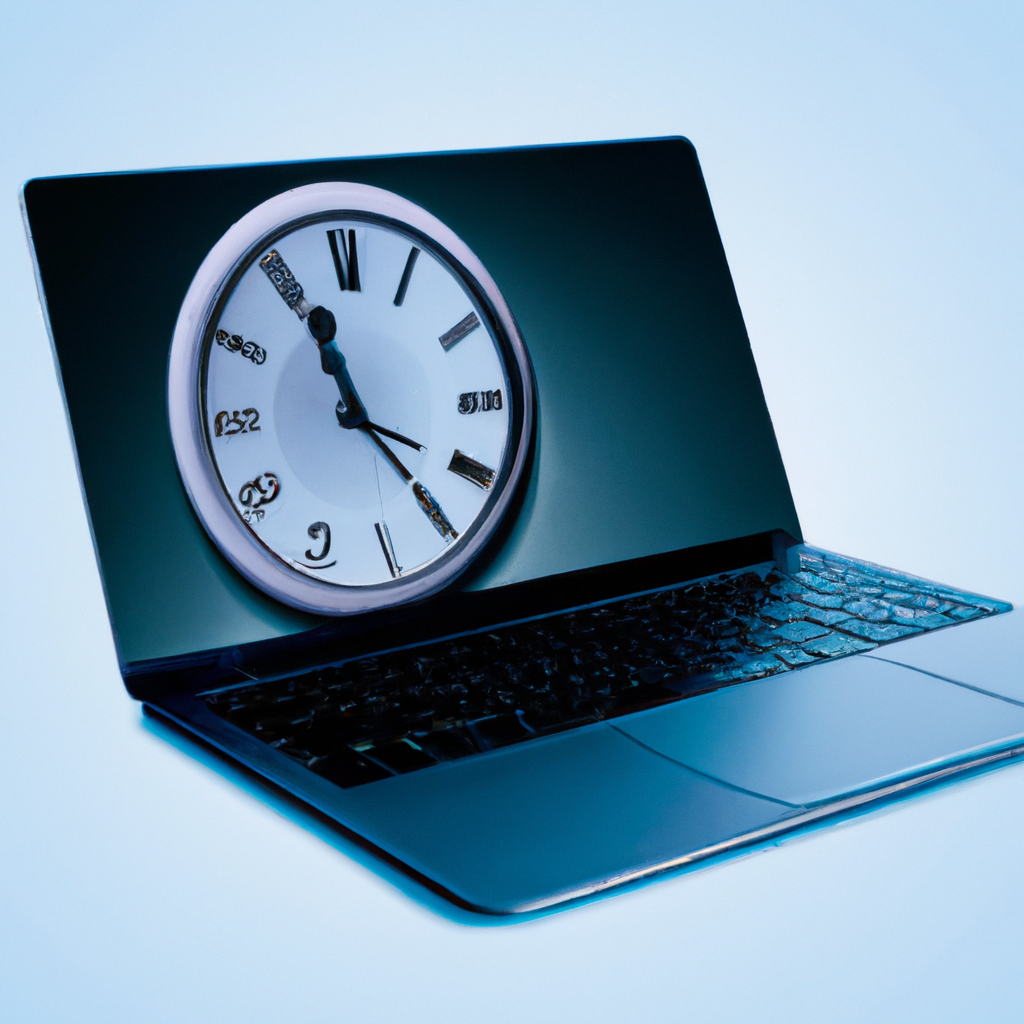So you’re wondering how often you should really invest in a new computer. In today’s rapidly advancing technological landscape, it can be tough to keep up with the latest trends and updates. But fear not, because we’re here to help guide you through this decision-making process. From longevity to performance, there are several factors to consider when determining the right time to upgrade your trusty machine. Whether you’re a casual user or a professional in need of high-powered hardware, we’ll break down the key considerations to help you decide when it’s time to bid farewell to your old computer and embrace the new and improved.

Factors to Consider
When deciding whether it’s time to get a new computer, there are several factors you should consider. These factors include the current technology of your computer, the workload you require from your computer, your budget, and your future needs. By carefully weighing these factors, you can make an informed decision about whether it’s time to invest in a new computer.
Current Technology
The current technology of your computer is an important consideration when determining if it’s time for an upgrade. One factor to evaluate is the state of your hardware. If you find that your computer’s hardware is outdated or no longer supported by the manufacturer, it may be a sign that it’s time to upgrade. Additionally, you should consider the operating system support for your computer. If you are running an outdated operating system that no longer receives security updates, it can leave your computer vulnerable to security threats.
Another aspect to consider when looking at current technology is the performance of your computer. Compare the performance of your computer to current models and determine if it still meets your needs. If your computer is struggling to handle basic tasks, it may be a sign that it’s time for an upgrade.
Workload
The workload you require from your computer plays a significant role in determining if it’s time for a new one. Consider the types of tasks you regularly perform on your computer. If you primarily use your computer for basic tasks such as web browsing, email, and word processing, a computer with lower specifications may still be sufficient for your needs.
However, if you frequently engage in more resource-intensive tasks, such as video editing or running complex software programs, you may want to consider upgrading to a computer with more processing power and memory. Assess how well your current computer handles your workload and determine if it’s time for an upgrade.
Budget
Your budget is another important factor to consider when deciding if it’s time for a new computer. Evaluate your financial situation and determine the affordability of a new computer. Consider not only the upfront cost of purchasing a new computer but also the potential cost of future upgrades.
It’s also worth considering warranty coverage when assessing your budget. If your current computer is out of warranty and prone to frequent issues, repairing it may become costly in the long run. In that case, investing in a new computer with warranty coverage may be a more cost-effective solution.

Future Needs
Thinking about your future needs is crucial when deciding if it’s time for a new computer. Consider whether you have any planned upgrades or if there are technological advances on the horizon that might necessitate a new computer.
If you have specific plans to upgrade your current computer, such as adding more memory or upgrading to a higher-end graphics card, it may be more cost-effective to invest in a new computer that already meets your future needs. Additionally, stay informed about technological advancements and consider if they would significantly enhance your computing experience in the near future.
Signs It’s Time for a New Computer
While considering the various factors mentioned above, there are certain signs that may indicate it’s time for a new computer. These signs include slow performance, frequent errors and crashes, lack of storage space, and limited software compatibility.
When your computer starts performing noticeably slower than when you first purchased it, it may be a sign that it’s time for an upgrade. Slow boot times, laggy performance, and delays when opening applications are all indicators that your computer may no longer be capable of handling your workload efficiently.
Frequent errors and crashes can also be a clear sign that your computer is struggling to keep up. If you find yourself encountering blue screens, repeated freezes, or software crashes, it’s likely time to start considering a new computer.
Another factor to consider is your computer’s storage capacity. If you constantly find yourself running out of storage space and having to remove files or uninstall applications, it may be an indication that your computer’s storage is insufficient for your needs.
Lastly, limited software compatibility can dictate when it’s time for an upgrade. If you find that newer applications or software updates are no longer compatible with your computer’s operating system or hardware, it can severely impact your productivity and limit your ability to use the latest software.
Guidelines for Different Users
The decision to get a new computer may vary depending on the type of user. Let’s discuss some guidelines for different user groups to help determine when it’s time for an upgrade.
Casual Users
For casual users who primarily use their computers for everyday tasks such as web browsing, email, and occasional document editing, the standard lifespan of a computer may be longer. These users usually don’t require the latest hardware and can get by with lower specifications.
However, casual users should still consider upgrade considerations. If your computer starts struggling with basic tasks or if you notice a significant decrease in performance, it may be time to start looking for a new computer. Keep in mind your budget and assess whether the cost of upgrading your current computer would be more beneficial than investing in a new one.
Students
Students often rely heavily on their computers for a variety of tasks, such as research, writing papers, and running educational software. When determining if it’s time for a new computer, students should consider their course requirements and the demands of their future academic pursuits.
If your current computer is struggling to meet the requirements of your coursework or you anticipate needing more processing power and memory for future academic pursuits, it may be time to upgrade. Consider consulting with your educational institution to understand their recommended specifications for computers to ensure you have the necessary tools to excel academically.
Gamers
Gamers tend to have some of the most demanding requirements for their computers. The latest games often require high-end hardware to run smoothly and provide a quality gaming experience. When deciding if it’s time for a new computer, gamers should consider not only the performance of their current rig but also the requirements of the games they intend to play.
If your computer is struggling to run modern games at satisfactory settings or if you want to experience the latest gaming technologies, such as virtual reality, it’s likely time for an upgrade. Upgrading your graphics card, increasing memory, or investing in a computer specifically designed for gaming may significantly enhance your gaming experience.
Professionals
Professionals who rely on their computers for work, such as graphic designers, architects, or video editors, often have specific software requirements and performance expectations. When considering an upgrade, professionals should assess whether their current computer can meet the demands of their software and workload.
If you find that your current computer is struggling to handle the software you use or if rendering times and performance significantly impact your productivity, it may be time for an upgrade. Consider the recommended specifications for the software you utilize and invest in a computer that can meet these requirements to ensure optimal performance.
In conclusion, determining whether it’s time to get a new computer involves considering various factors such as the current technology of your computer, your workload, your budget, and your future needs. By evaluating these factors, recognizing signs of decline, and understanding the guidelines relevant to your user type, you can make an informed decision about when to invest in a new computer. Remember, technology is constantly evolving, and staying up-to-date can greatly enhance your computing experience.
